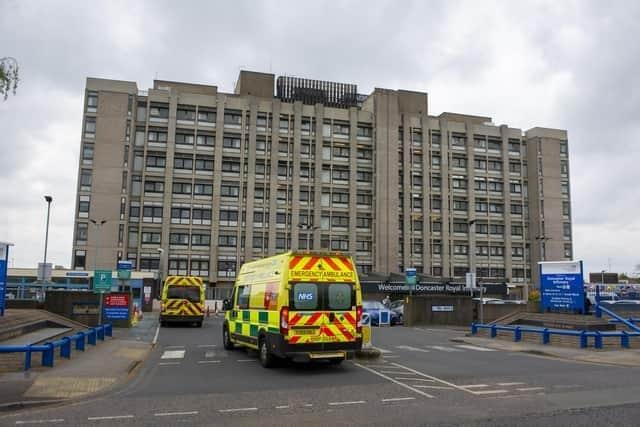RAAC crisis shows urgent need to rebuild Doncaster Royal Infirmary, Oliver Coppard tells Government


The hospital trust had hoped it would be included in a list of new hospital sites announced by the Government, but this did not materialise.
The building is in a state of significant disrepair. In April 2021, the Women’s and Children’s Hospital (a part of DRI) suffered a major fire and flooding event caused by a ruptured water supply pipe which resulted in irreparable damage to life-expired electrical infrastructure causing power failure to an entire wing - 50 per cent of the building.
Advertisement
Hide AdAdvertisement
Hide AdThe Government has said it is “committed to investing in healthcare infrastructure”, has recently funded an A&E extension at the hospital, and gave £9.4 million in 2020/21 for repair work.
However the hospital’s current maintenance backlog is £118.3 million to just keep the building propped up in its current state, and bosses say they are forced to spend the majority of their capital budget on repairs.
Now, Labour’s South Yorkshire Mayor Oliver Coppard has written to the Secretary of State for Health and Social Care, Steve Barclay, urging him to intervene.
He said: “Doncaster Royal Infirmary remains classified in the highest level of risk the NHS recognises – “almost certain” and “extremely significant”. In other words, further incidents are unavoidable without intervention. This is simply not good enough.”
Advertisement
Hide AdAdvertisement
Hide AdRichard Parker, the hospital’s chief executive, said the trust faces significant estate-related challenges, and there was an urgent need for investment.
He said: “I am very disappointed that the trust’s business case for the development of a new hospital in Doncaster was not included in the Government’s New Hospital Programme, earlier this year.
“Doncaster Royal Infirmary is one of the largest sites in South Yorkshire and currently faces significant estate-related challenges, and the current cost of resolving the backlog maintenance work would be over £500m which highlights the significant, and urgent, need for investment to meet the growing demands of our city.”
The letter to Mr Barclay states: “By the Government’s own estimation, patients and the public will suffer worse health outcomes; longer waiting lists; and ongoing and increasing safety risks that are both avoidable and unacceptable.
Advertisement
Hide AdAdvertisement
Hide Ad“The events of the past week regarding (RAAC) in our schools have rightly put the issue of underinvestment in our public estate at the forefront of discussion. I am sure that your officials are closely monitoring the implications for healthcare settings across the country as a result.
"In (junior health minister) Lord Markham’s letter of the 25 August to Dame Rosie, he recognised the “need to invest” while deferring any potential decisions until the ambiguously defined “future spending reviews and fiscal events”. This is simply not good enough. If we must wait for funding, we at least deserve a jointly-developed, jointly-owned plan between the region and the Department.
“I therefore call once more for an urgent meeting to discuss a shared vision for Doncaster Royal Infirmary and a pathway to funding – including for urgent remedial works to prevent any catastrophic incident.”
A Department of Health and Social Care spokeswoman said: “We are committed to investing in health infrastructure across the country and we have provided over £21 million for Doncaster and Bassetlaw Teaching Hospitals NHS Foundation Trust to build an extension for its emergency department to expand capacity and treat more patients, as well as £9.4 million in 2020/21 to tackle the most urgent maintenance issues.
Advertisement
Hide AdAdvertisement
Hide Ad“We recently announced a new, rolling programme of investment in new health capital infrastructure to deliver new hospitals up to 2030 and beyond, and trusts will be made aware when and how further projects will be invited to join the programme.”
Comment Guidelines
National World encourages reader discussion on our stories. User feedback, insights and back-and-forth exchanges add a rich layer of context to reporting. Please review our Community Guidelines before commenting.
